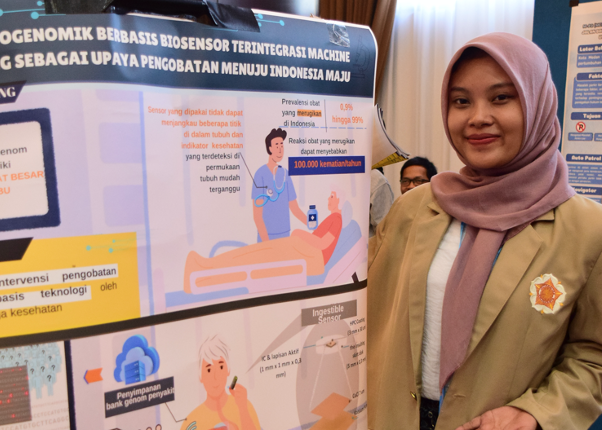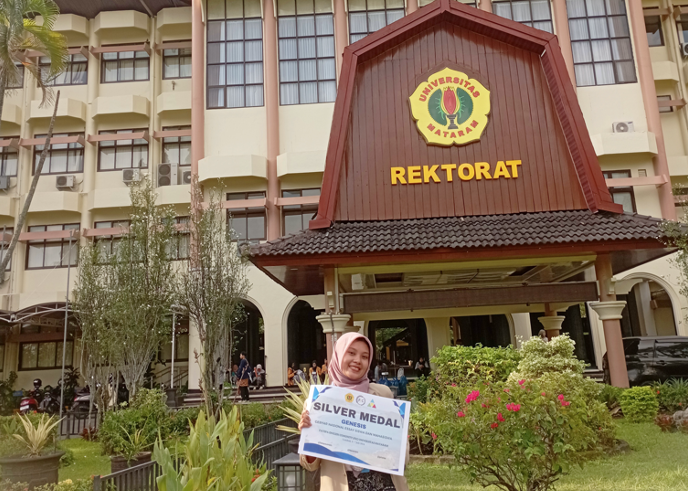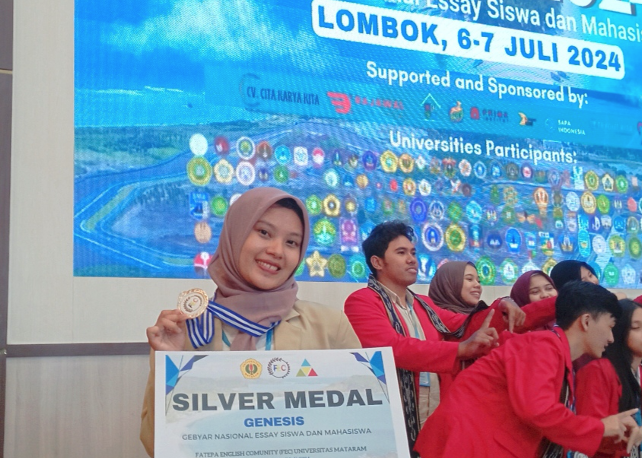The prevalence of adverse drug reactions in Indonesia ranges from 0.9% to 99%, depending on the type of drug, duration, and therapeutic dose. Each individual can respond differently to the same medication due to varying genomic reactions. This concept is known as pharmacogenomics. However, the medical devices used in pharmacogenomics, such as sensors, often cannot reach certain areas within the body. Additionally, a significant challenge in genomic data classification is the vast number of individual genes, which can number in the tens of thousands. Meanwhile, medical devices are limited and often inadequate.
In response to these challenges, Feny, a biology student at UGM, proposed the development of an Integrated Machine Learning-Based Biosensor Pharmacogenomics System as an advanced treatment method for Indonesia under the guidance of Lecturer Tyas Ikhsan Hikmawan, M.Sc., Ph.D.. Her idea was presented at the National Student and School Essay Festival (Genesis) and won the Silver Medal. The competition held by the Fatepa English Community at the University of Mataram on July 6-7, 2024, featured 315 entries. The competition included several stages: submission of a full paper, creation of a presentation video, preparation of a PowerPoint presentation, and a live poster presentation before the judges.
Her innovation involves using biosensors to monitor molecular interactions in patient treatments real-time. These ingestible biosensors provide information about organs’ physiological parameters, allowing them to monitor the genetic profiles related to internal conditions and diseases. The approach employs a random tree classification model that predicts personalized drug responses, side effects, and the patient’s pharmacogenomic variants.
The combination of pharmacogenomic treatment systems with integrated machine-learning biosensors will enhance drug safety. Implementing this system in Indonesia will reduce adverse drug reactions and side effects. Healthcare professionals can quickly monitor patients’ drug intervention responses, enabling them to make the best treatment decisions promptly.
[Author: Feny Nur Nucifera]
[Author: Feny Nur Nucifera]




